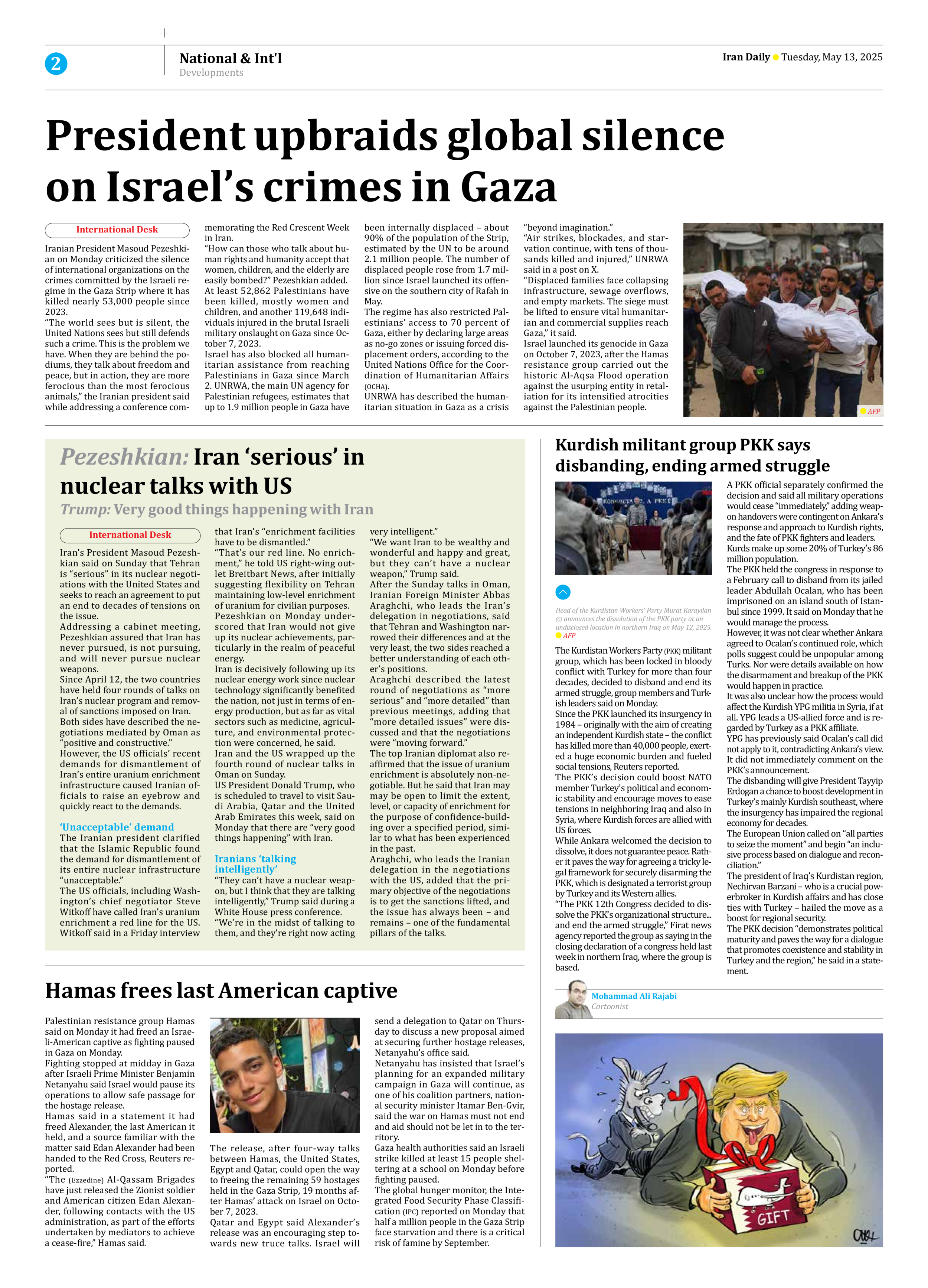
Copy in clipboard...
Kurdish militant group PKK says disbanding, ending armed struggle
Since the PKK launched its insurgency in 1984 – originally with the aim of creating an independent Kurdish state – the conflict has killed more than 40,000 people, exerted a huge economic burden and fueled social tensions, Reuters reported.
The PKK’s decision could boost NATO member Turkey’s political and economic stability and encourage moves to ease tensions in neighboring Iraq and also in Syria, where Kurdish forces are allied with US forces.
While Ankara welcomed the decision to dissolve, it does not guarantee peace. Rather it paves the way for agreeing a tricky legal framework for securely disarming the PKK, which is designated a terrorist group by Turkey and its Western allies.
“The PKK 12th Congress decided to dissolve the PKK’s organizational structure... and end the armed struggle,” Firat news agency reported the group as saying in the closing declaration of a congress held last week in northern Iraq, where the group is based.
A PKK official separately confirmed the decision and said all military operations would cease “immediately,” adding weapon handovers were contingent on Ankara’s response and approach to Kurdish rights, and the fate of PKK fighters and leaders.
Kurds make up some 20% of Turkey’s 86 million population.
The PKK held the congress in response to a February call to disband from its jailed leader Abdullah Ocalan, who has been imprisoned on an island south of Istanbul since 1999. It said on Monday that he would manage the process.
However, it was not clear whether Ankara agreed to Ocalan’s continued role, which polls suggest could be unpopular among Turks. Nor were details available on how the disarmament and breakup of the PKK would happen in practice.
It was also unclear how the process would affect the Kurdish YPG militia in Syria, if at all. YPG leads a US-allied force and is regarded by Turkey as a PKK affiliate.
YPG has previously said Ocalan’s call did not apply to it, contradicting Ankara’s view. It did not immediately comment on the PKK’s announcement.
The disbanding will give President Tayyip Erdogan a chance to boost development in Turkey’s mainly Kurdish southeast, where the insurgency has impaired the regional economy for decades.
The European Union called on “all parties to seize the moment” and begin “an inclusive process based on dialogue and reconciliation.”
The president of Iraq’s Kurdistan region, Nechirvan Barzani – who is a crucial powerbroker in Kurdish affairs and has close ties with Turkey – hailed the move as a boost for regional security.
The PKK decision “demonstrates political maturity and paves the way for a dialogue that promotes coexistence and stability in Turkey and the region,” he said in a statement.







